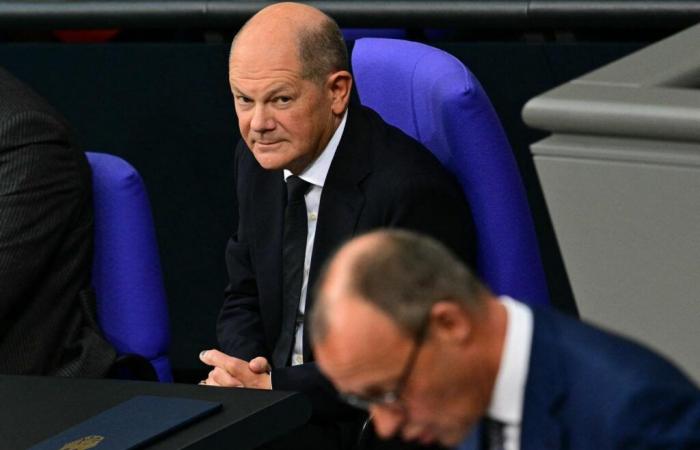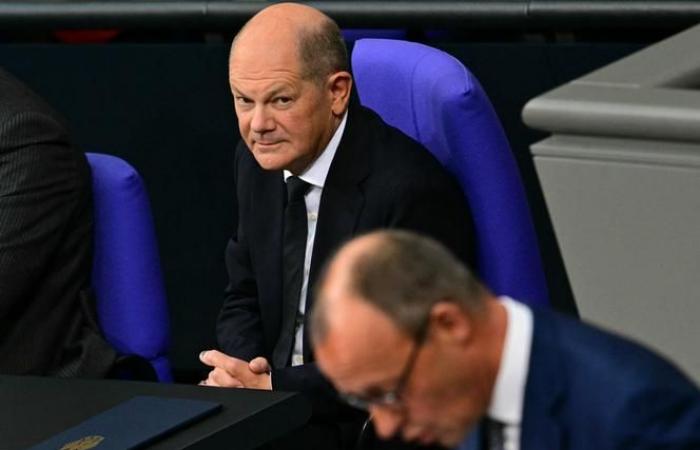The fate of Ukraine will also be decided on February 23, 2025. Since the start of the campaign for the early legislative elections in Germany scheduled for that day, the war taking place on the borders of Europe has provided the favorite playing field of the two main contenders for the chancellorship: the outgoing chancellor, Olaf Scholz, and his rival, the conservative Friedrich Merz, of the CDU, well ahead in the polls. The conflict, around which the regional elections in the east of the country have already been partly played out in September, is emerging as one of the main themes of this election, against the backdrop of Donald’s victory. Trump and the threat of American disengagement.
Two lines oppose each other: that of Olaf Scholz, elected chancellor a few weeks before Russia’s invasion of Ukraine in 2022, who claims to be the “chancellor of peace” and whose doctrine is that of prudent support for kyiv supposed to protect Germany from an escalation that its rival would on the contrary threaten to provoke. Opposite, Friedrich Merz adopts a more bellicose speech, which aims to be realistic, calling in particular on Germany to deliver the medium-range Taurus missiles to kyiv, which would allow it to strike deep into Russian territory, and condemning the chancellor’s hesitations.
Recent weeks have offered a telling spectacle of how the two candidates intend to use the Ukrainian conflict to campaign, in a country itself divided over the role that Germany should play. According to a recent study by public television ARD, 61% of respondents are opposed to Germany delivering Taurus cruise missiles to Ukraine. But polls also show that support for more military aid is increasing, particularly since Donald Trump’s victory.
Read also | Article reserved for our subscribers War in Ukraine: the ruling coalition in Germany is torn apart over the sending of Taurus missiles to Ukraine
Read later
Highlights
Lagging behind in the opinion polls, contested by some of the members of his own party who would have preferred the Minister of Defense, Boris Pistorius, Olaf Scholz has multiplied the stunts recently, alternating diplomacy and demonstration of force . After calling Russian President Vladimir Putin on November 15, taking some of Germany’s allies by surprise, he made a surprise visit to kyiv on Monday, where he promised additional aid of 650 million euros. This was only his second trip to Ukraine since the start of the war – he went there in February 2022, just before Russia’s invasion, and then in June of the same year, accompanied by Emmanuel Macron. and the Italian Prime Minister at the time, Mario Draghi.
You have 57.18% of this article left to read. The rest is reserved for subscribers.







